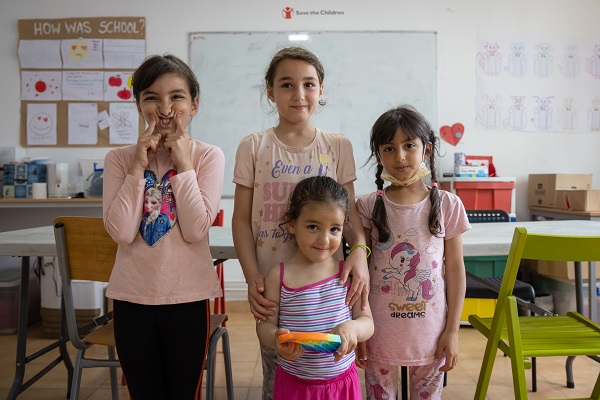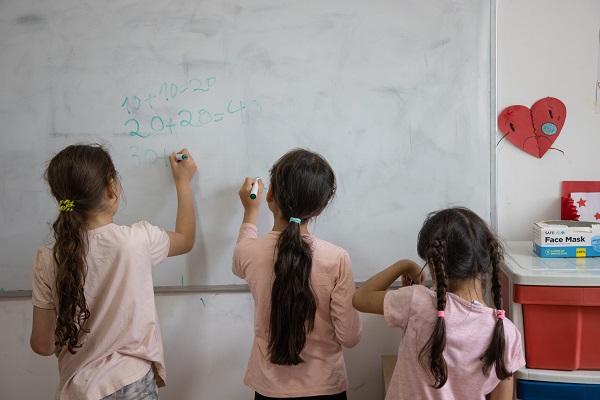 Sjeverozapadni Balkan
Sjeverozapadni Balkan
Jezici
"Write a letter to your friends and tell them how you feel"
Medina* (11) talks about her home country, Iraq, with mixed feelings. It's where her family had a home, which is something Medina* and her sisters have been longing for during the past six years of travelling. It is also a place where that home was destroyed in the shelling.
"We left Iraq because there was a war there. When people kill each other, that's war. One day we had to leave our home, because aeroplanes came, carrying bombs. I know that there are 'good' aeroplanes people use to travel, but I only saw these 'bad' planes. That's why I don't like aeroplanes," tells Medina* about the war.
The family left the country hoping to reach safety and find a place where Medina* and her younger sisters can have a better life. "We went to Greece, across the sea in a boat. It was very dangerous and frightening. My sisters and I were sitting on the edge of the boat, and we were afraid," says Medina*.
Upon their arrival in Greece, three girls and their parents were sheltered in the Athens area. Medina* started going to school. "I didn't understand a word of Greek. Nevertheless, I liked going to school. I also had my best friend in school. She was always kind to me, and we shared everything."

Medina* and her sisters in a child-friendly space in asylum centre in Serbia. Photo by Nemanja Stojanovic, Save the Children
Although Medina* and her family arrived in Greece as refugees, they found some stability and elements of normal life there. For Medina*, her school was the place where she started feeling accepted and at home. "In school, we often played and made parties, with lots of dancing and singing. It isn't easy to learn without knowing the language. But I did my best. School is fun, but I like it also because I would like to be a doctor for children, or a teacher. In either case, I would be kind and nice to children."
Although the family was interested in staying in Greece, they had to leave abruptly after four years. "We couldn't have stayed in Greece because our asylum claim was rejected. We were very sad because we had to leave. That's why we came to Serbia," says Medina*.
The family is staying in the asylum centre near Serbian capital, Belgrade. Medina* left Greece before completing the school year. In the asylum centre, the child-friendly space operated by Save the Children and the local partner, centre for Youth Integration, provides a place where Medina* and her sisters can learn and make friends with other children. The child protection team runs psychosocial support and non-formal education activities, helping bridge the gap in children's education and supporting them to process some of the harrowing experiences they have had.

Medina* and her sisters participating in activities in a child-friendly space in asylum centre in Serbia. Photo by Nemanja Stojanovic, Save the Children
"I miss my school and my friends from Greece, and I want to go to school again," says Medina*. The team working in the child-friendly space will support the girl to continue her education in Serbia. Unfortunately, Serbia is seen mainly as a transit country, and many families leave, trying to reach Western European countries. Life in transit takes away from the quality of children's lives, as it interrupts their education and forces them to leave behind the friends they had made. Unfortunately, the families often feel like continuing the journey is their only option, as the asylum systems in the Balkan's countries are slow and inefficient, and the countries along the Balkans route can't offer many opportunities for jobs and economic independence, which is a precondition to a dignified life.
Medina* says she often feels sad, remembering her home in Iraq or friends in Greece. But her experience also made her wiser, as it often happens with children on the move, who learn harsh life lessons much before their peers who didn't experience violence and displacement. "When you are sad, you can run. I am very fast, and I love to run. You can also write a letter to your friends and tell them how you feel. I write letters to my friends in Greece," says Medina*.
*Names are changed in order to protect children's identity.